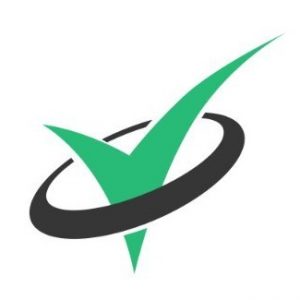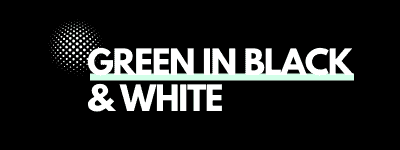This post contains affiliate links meaning we may receive a commission for any products purchased via those links. For a list of our partners, please read our disclosure.
If you’re one of those people that gets jittery at the sight of bad spelling, punctuation or grammar, then working as a proofreader is definitely something you need to explore.
Proofreading is a legitimate and credible home business that pretty much anyone can set up without any qualifications or experience. It’s therefore one of the most accessible work from home jobs out there.
You can work as a proofreader on an employed basis but this article will explore how to do it freelance so you can reap all the benefits of working for yourself such as :-
- Flexible working hours
- Avoiding the commute
- No one to answer to (but yourself)
- More relaxing atmosphere
- Better work life balance
before we start – want to make an extra $200 a month on the side? – check out these survey sites

Survey Junkie
(US, Canada and Australia Only)
Up to $150 per survey if you get onto the focus groups. Average pay is around $10 per hour. Click my special link, submit your email and start earning. You even get paid by them to join up.

SwagBucks
(Only available in USA, Australia, Canada, India, Germany, UK and Ireland)
Earn up to $10 an hour with SwagBucks. $5 free just for signing up. Simply sign up through my link, confirm your email and you’re free to start earning money.
What is Proofreading?
Essentially proofreading is a job where you scan through documents in order to check for spelling, grammar, syntax, punctuation and other written errors.
In some industries it is paramount that what is written down into documents is accurate and companies/individuals will pay good money to ensure their written documents are error free!
As a proofreader, you’ll be checking documents in a variety of different settings. Some of the common industries are:-
- In the legal industry where you might be expected to check court transcripts, contracts or pleadings;
- In the medical/science industry where you might be checking letters of medical practitioners, scientific research papers and articles;
- In the web design industry where you might be checking web pages and web articles;
- In the blogging industry where you might be proofreading a company’s or individual’s blog posts before publishing;
- In the writing industry where you could be checking novels, magazines or newspapers.
What Skills Do You Need?
To be a proficient proofreader it helps to have a good understanding of written English. You need to know your “there’s” from your “theirs”, how to use punctuation and it helps to have an extensive vocabulary and excellent spelling skills.
However, that doesn’t mean you have to be a Pulitzer prize winner or have George Orwell level writing skills to do proofreading. Like most things, new skills can be picked up along the way.
You will also need a keen eye for detail. After all, proofreading is about catching errors in written documents before they are published. You might be the last person to check a document before it goes live, so the reputation of the writer is in your hands!
⭐Related Article: 9 Business Ideas to Do from Home
Do You Need a Degree?
It is true that some employers or clients will require a bachelors degree before engaging your services, but this is not essential across the industry.
There are plenty of proofreaders out there who have limited formal qualifications.
As such, being unqualified to degree level is not a bar to entering the industry and you should still be able to find work, especially on a freelance basis.
However, having a bachelors degree, especially in a writing subject like English or journalism, will definitely help along the way!
Where to Start?
Starting any new work at home career is likely to be daunting at first but there is plenty of help out there to get you started on the correct path.
If you’re interested in starting a new career as a proofreader then I would fully recommend Caitlin Pyle’s online course “Proofread Anywhere“.
Proofread Anywhere provides two options, namely a general proofreading course and also a course dedicated to proofreading transcript documents.
Transcripts are written documents that were originally in audible form (i.e. audio recordings).
You usually find transcripts in the legal or medical industries. For example, a transcript will be made from an audio recording of court proceedings or from a doctor’s dictaphone note taken when examining a patient.
Caitlin’s course is an amazing place to start as she takes you through every nuance of being a proofreader.
You’ll learn everything from the initial skills required to get going, right through to how to set up a profitable freelance proofreading business.
Caitlin made $43,000 in her first year proofreading and she is therefore a real world example of how anyone can create a profitable work from home proofreading business!
Her course does cost but she offers a free introductory video so you can test the proofreading waters before committing.
How Much Will You Earn?
Earnings will obviously depend on your level of experience and whether you work on an employed or freelance basis.
As above, Caitlin earned $43,000 in her first year but that was several years ago now. Typical earnings are likely to be a lot more today.
If we look at the statistics from Salary.com, we can see that as of November 2019 the average proofreading salary in the US is $51,727, climbing to as high as $65,747!

Given the average yearly income in the USA is around $31,000, proofreading is clearly quite a lucrative career in that it produces earnings well above the average.
Where to Find Proofreading Jobs?
When you’ve started your new career as a proofreader you’ll want to ensure you’ve got a steady flow of work coming in to keep you busy.
You’ll be glad to hear that there are tons of companies out there who recruit proofreaders on a freelance basis. I would start by looking at some of these:-
- ProofreadingServices.com – This company is always recruiting new proofreaders who can pass their 20 minute proofreading test;
- BabbleType – Another company that is regularly on the look out for transcribers, editors and proofreaders;
- Fivver – This is an excellent place to advertise your proofreading services on a completely freelance basis;
- FlexJobs – Flex Jobs is purely for flexible and freelance jobs and has plenty of proofreading job opportunities.
For more proofreading jobs be sure to check out my post on 20 Proofreading Jobs for Beginners!
Final Thoughts
If you like the idea of working from home, earning an above average salary and you have a keen eye for detail and at least moderate written English skills, then proofreading should not be ignored.
With excellent web based learning material like Caitlin’s Proofread Anywhere course, there’s a clear path into the industry that you can proceed along.
Proofreading is therefore a very accessible and worthy home business opportunity that shouldn’t be overlooked!
PIN IT FOR LATER:-






There is an error in your article on proofreading! Yikes!
Congratulations you appear to be suitable for the job?.
I’ve had a look through the article and I’m not seeing the error. Can you point it out?
Thanks
Tons of companies.
Hi Mel. My audience is largely North American so I use American English and ton is how they spell it there. It’s tonne in the UK where I live.
I would have used hundreds or thousands.?